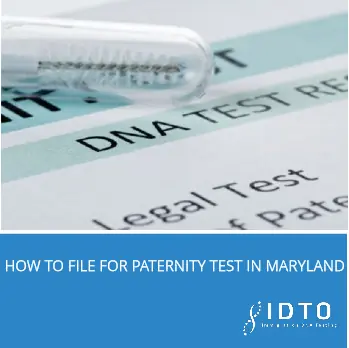Determining legal paternity has profound implications for supporting children emotionally and financially. When unmarried parents have doubts about biological paternity, pursuing answers through the court system helps ensure decisions regarding parental rights and duties are fair and informed.
Establishing a legal father is vital for a child to benefit from child support, inheritance rights, insurance coverage, social security, veterans benefits and more. It also grants specific rights like custody and visitation to confirmed biological fathers. In this post, we will discuss the process to establish paternity in Maryland.
Court Ordered Paternity Testing: Establishing Paternity
How to start a paternity case
Before starting a paternity case. It is recommended that you consult a Family Law Attorney to ensure you understand all the possibilities you are faced with based on your unique circumstances.
File a paternity petition with the family court. If your petition is accepted a court order will be sent to the respondent. The respondent can be either the alleged father or the mother
Either the mother, legal guardian, or Social Services if the child is receiving public assistance, or the alleged father can file a petition.
Not all petitions will be accepted by the Family Court.
Who Can Initiate Paternity Testing:
Several individuals are eligible to file a petition for paternity testing in Maryland:
- The child’s mother
- The alleged father
- The child, if over 18 years old
- Government agencies, like the Child Support Enforcement Administration
Initiating the Legal Process:
- File a Paternity Petition: Either party can file a petition with the Family Court in their jurisdiction. The petition outlines the request for paternity testing and presents supporting evidence.
- Court Hearing: If the judge accepts the petition, a hearing will be held to review the evidence and determine if testing is necessary.
- DNA Testing: If ordered by the court, both the alleged father and the child will undergo DNA testing at an accredited laboratory. Cheek swabs are the standard method, but blood tests are also an option.
- Test Results and Outcome: Based on the results, which typically arrive within 4-8 weeks, the court will either:
- Establish paternity: The alleged father will acknowledge paternity and likely be added to the child’s birth certificate. Child support and child custody arrangements may be determined.
- Determine non-paternity: The court will rule on any ongoing support based on the established relationship between the alleged father and the child.
Important Reminders:
- This article is for informational purposes only and does not constitute legal advice. Consult a qualified family law attorney in Maryland for guidance specific to your situation.
- Consider alternative methods of establishing paternity, like a Voluntary Acknowledgment of Paternity (VAP) form, if both parties agree.
- Paternity testing costs can vary significantly. Consider both private and court-ordered options depending on your circumstances.
- Throughout the process, prioritize the child’s best interests and maintain respectful communication.
Conclusion:
In summary, establishing paternity in Maryland for unmarried couples can be as simple as signing an VAP form at the hospital or if the unmarried couple disagrees on the paternity of the child then filing a petition in family court is an option for paternity establishment.
It is important to note, that performing a legal paternity test can only be performed by a DNA Testing company that offers accredited DNA testing services. If you require fast, accurate affordable services. Contact IDTO DNA Testing Center at 877-680-5800. to get started today.



